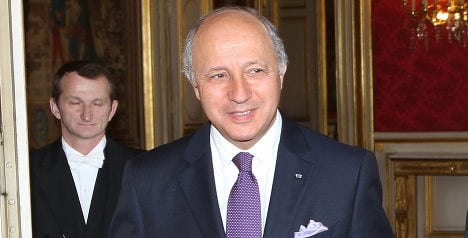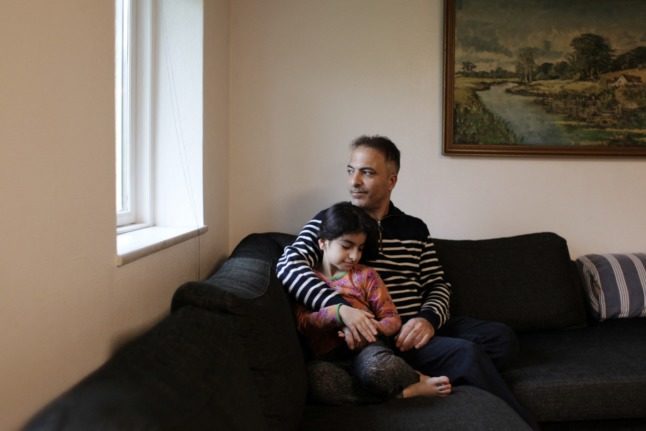"France's position is clear: we consider Assad to be butchering his own people. He must leave, and the sooner he goes the better," Fabius told reporters in a tent at the UN-run Zaatari refugee camp in northern Jordan, which houses around 6,000 Syrians.
"We are, at the international level, encouraging the Syrians to find a political transition. I stress that a political transition must come soon – this is the obvious solution," he added as dozens of Syrian refugees gathered outside the tent, chanting "Allahu akbar (God is greatest).
Fabius and his Jordanian counterpart Nasser Judeh toured the seven-square-kilometre (two-square-mile) camp, outside the city of Mafraq, before meeting King Abdullah II in Amman for talks on the Syrian conflict.
Several camp residents spoke to Fabius as he walked about, urging weapons for the rebels to topple Assad.
"We do not need refugee camps. We need weapons, RPGs (rocket-propelled grenades) and anti-aircraft rockets to fight Bashar," said Mohammed Hariri, 51, of Daraa, the cradle of the revolt that erupted 18 months ago.
"Bashar forces killed my son and destroyed my house. I want revenge," he said.
Suad, a 40-year-old mother of four, agreed.
"We do not want aid. We want to arm the opposition and get rid of Bashar's regime," she said.
Fabius later told reporters: "There has been no delivery of lethal weapons from European countries, particularly France, because we are committed to uphold an arms embargo.
"We respect the embargo, and at the same time we are helping the Syrian resistance as much as we can," he said, adding however that some countries were willing to provide the rebels with non-lethal equipment.
And he added that France was in contact with "a certain number of officials" from the Syria opposition, including the rebel Free Syrian Army.
Asked about the possibility of imposing no-fly zones, he said there was no such decision yet forthcoming from the United Nations to authorise them.
Fabius also called for a "representative" political transition in Syria.
"This political transition must unite the Syrian people and guarantee the rights of minorities. It is essential that it be representative of Syria as it is today," he told a news conference.
"We sincerely hope that a transitional government can be put in place as quickly as possible – one that the leading countries of the world will recognize – and that this will enable the Syrians to hasten the fall of Assad, which has become a clear necessity."
At the desert refugee camp, Fabius met with UN officials and visited a French field hospital, which was dispatched to the kingdom on Sunday along with tonnes of aid and medical equipment.
"The purpose of my visit here is to show France's solidarity … My trip is primarily humanitarian in nature," he said, adding that conditions in the camp are "very difficult" and "all remains extremely precarious."
Syrian refugees have complained of sweltering heat, dust, lack of electricity and at times sexual harassment.
"Today I have brought just over 20,000 masks which will protect people's throats, ears and noses from sand," Fabius said.
"I will also meet members of the Syrian opposition," he added without elaborating.
Jordan is hosting more than 150,000 Syrians, including members of the opposition, as well as former prime minister Riad Hijab, who fled to the kingdom last week after defecting.
"At the meeting with the French minister, the king warned of the Syrian conflict's repercussions for the entire region," a palace statement said, stressing that "Jordan will continue to aid the Syrian refugees despite limited resources."



 Please whitelist us to continue reading.
Please whitelist us to continue reading.
Member comments